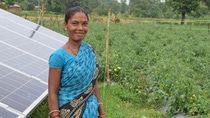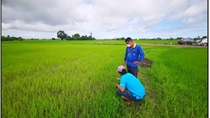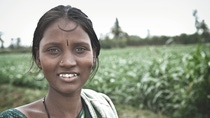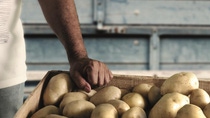Agriculture
Smallholder Empowerment
There are around 500 million smallholder farms in the world. With the global population rising, the demand of agricultural products thereby soaring and the need for climate-resilient farming, the significance of smallholders’ role with regards to resilient food systems can only be expected to grow. Through our work with them, we intend to both foster food security and strengthen their resilience to climate volatility and change.
What is the role of smallholder farmers in global food security?
Smallholder farms tend to be located in developing, rural areas and owned or operated by families which are all too often poor and food insecure, with limited access to agricultural know-how, services and markets. Despite these limitations, smallholders play a pivotal role in global food security, producing food for a significant part of the world’s population while maintaining the food supply’s genetic diversity. Through our work with them, we intend to both foster food security and strengthen their resilience to climate volatility and change.
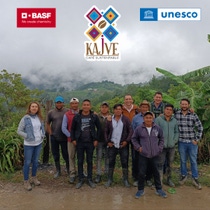
In Mexico, BASF and UNESCO collaborate on the KAJVE Sustainable Coffee initiative, recognized for its sustainability leadership and impact. The UN Global Compact decorated the project with the LOGRA Sustainability award in the “Prosperity” category.
This initiative has increased the productivity and income of coffee growers in Chiapas while respecting and honoring their traditions and culture through partnership with UNESCO. The project promotes best agricultural practices and innovative agricultural technology to improve the lives of small-scale coffee producers while promoting climate change adaptation and mitigation. It aligns with the Sustainable Development Goals and has already impacted 1,338 growers in Mexico and Guatemala, achieving a 35% increase in production. KAJVE integrates cultural heritage and environmental stewardship with commercial value chains, supporting a sustainable future for coffee production.
Watch the video to hear directly from the coffee growers how BASF is helping them and their families with sustainable and respectful farming and follow KAJVE on social media platforms for updates.
Smallholders deliver important environmental services
The upscaling of actions enabling them can prove significant for local and international climate change strategies. While some of the issues they face are country-specific, smallholders in emerging markets generally lack access to high quality crop inputs and knowledge to perform right and timely interventions based on good agricultural practices. Supporting smallholder farmers in emerging markets in the transition to more sustainable agriculture therefore requires enabling access to information, advice, and technology to work efficiently and safely.
Joint approach to solving the challenges of smallholder farmers
We support smallholder farmers in achieving better yield by providing access to state-of-the-art innovation and facilitating modern farming techniques enabled by digitalization and know-how of climate-smart practices. The challenges faced by smallholder farmers and their communities cannot, however, be solved by a single entity. We therefore blend our expertise with the local knowledge of partner organizations and across the agricultural value chain to promote best practices and increase prosperity in smallholder communities. In so doing, we will also honor our pledge to the UN Food Systems Summit’s “Zero Hunger, Nourish the Future” initiative.
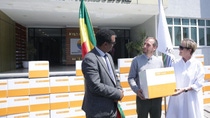
Dr. Melese Mekonnen, State Minister of Agriculture, Ben Depraetere, Managing Director of BASF | Nunhems in Ethiopia and Julie Graham, Country Director SNV Ethiopia.
BASF’s vegetable seeds business and SNV extend their partnership in the Horti-LIFE project to support smallholder farmers in Ethiopia.
BASF has donated 800 kg of onion seeds, 666,000 hot pepper seeds, and 1,500,000 tomato seeds to support 4,000 smallholders in Tigray and Amhara regions. This initiative aims to revitalize agriculture and empower communities to rebuild their livelihoods.
Read the full press release to learn more about this collaborative initiative and its impact.
Take a look at concrete examples of our Smallholder Empowerment initiatives
Learn more about our sustainability commitments
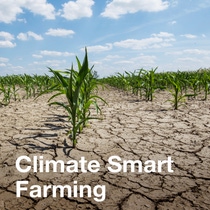
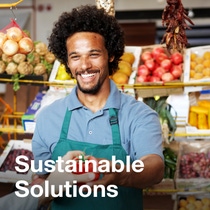
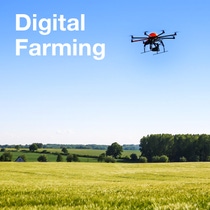
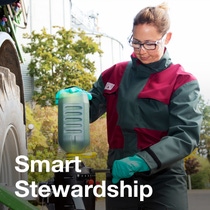
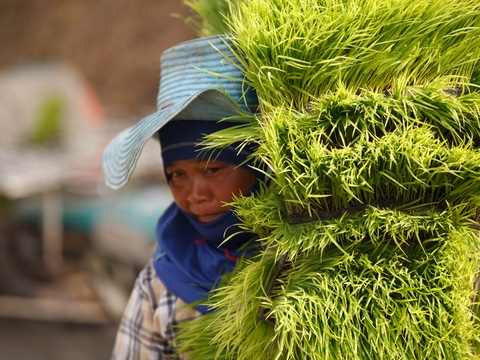.jpg)
